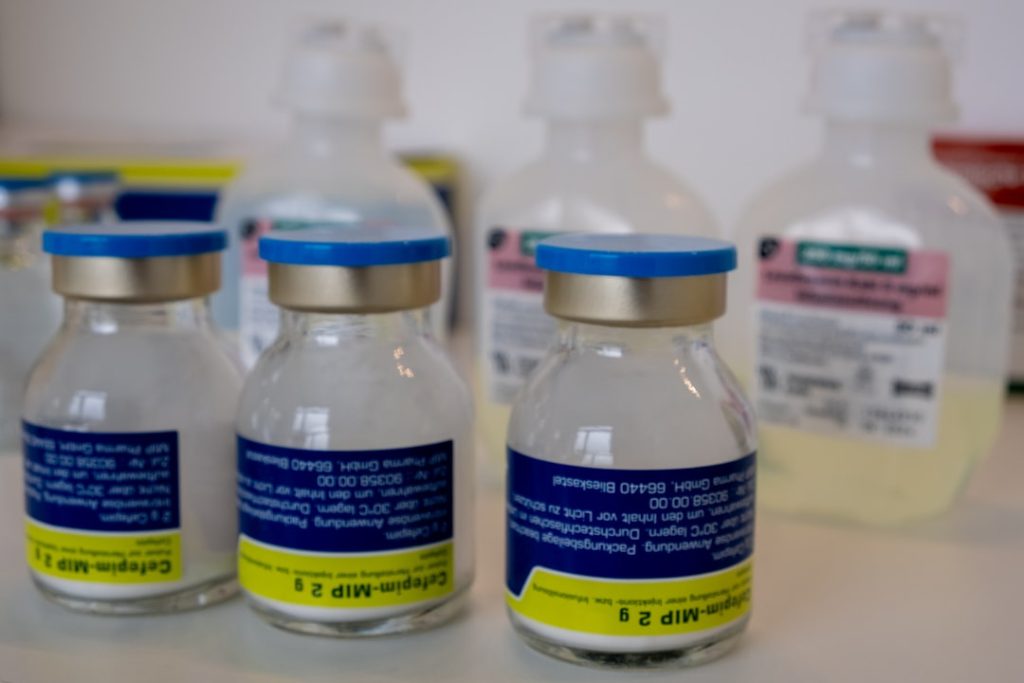Clinical trials are structured research studies conducted to evaluate the safety and efficacy of new medical interventions, including drugs, devices, and treatment protocols. These trials are essential for advancing medical knowledge and improving patient care. They typically involve human participants who volunteer to take part in the research, allowing scientists and medical professionals to gather data on how a new treatment works in real-world scenarios.
Clinical trials are meticulously designed to answer specific research questions, often comparing a new treatment against a standard treatment or a placebo. The process of clinical trials is divided into several phases, each with distinct objectives. Phase I trials primarily focus on assessing the safety of a new intervention, determining the appropriate dosage, and identifying any side effects.
Phase II trials expand the participant pool to evaluate the treatment’s effectiveness and further assess its safety. Phase III trials involve larger groups of participants and are crucial for confirming the treatment’s efficacy and monitoring adverse reactions in a more diverse population. Finally, Phase IV trials occur after a treatment has been approved for public use, focusing on long-term effects and additional benefits or risks.
Key Takeaways
- Clinical trials test new medical treatments and require specific participant qualifications.
- Finding local clinical trials can be done through online databases and healthcare providers.
- Participation offers benefits like access to new treatments and contributing to medical research.
- Risks include potential side effects and time commitments, so informed consent is crucial.
- Compensation varies, and maximizing earnings involves meeting eligibility criteria and participating in multiple trials.
How to Find Clinical Trials Near Me
Finding clinical trials in your vicinity can be a straightforward process if you know where to look. One of the most effective methods is to utilize online databases that aggregate information about ongoing clinical trials. Websites such as ClinicalTrials.gov provide a comprehensive database of clinical studies conducted worldwide, allowing users to search by location, condition, or intervention.
By entering your zip code or city, you can filter results to find trials that are geographically accessible. In addition to online resources, local hospitals and medical centers often have dedicated research departments that conduct clinical trials. Many of these institutions maintain their own websites with listings of current studies.
Reaching out directly to healthcare providers can also yield valuable information; physicians may be aware of trials that are not widely advertised but could be relevant to your health condition. Furthermore, patient advocacy groups related to specific diseases often have resources or connections that can help individuals find suitable clinical trials.
Benefits of Participating in Clinical Trials

Participating in clinical trials offers numerous advantages for individuals seeking new treatment options or contributing to medical research. One of the most significant benefits is access to cutting-edge therapies that may not yet be available to the general public. For patients with chronic or life-threatening conditions, enrolling in a clinical trial can provide an opportunity to receive innovative treatments that could potentially improve their health outcomes when conventional therapies have failed.
Moreover, participants in clinical trials often receive comprehensive medical care throughout the study period. This includes regular monitoring by healthcare professionals, which can lead to early detection of complications or side effects. Additionally, many trials cover the costs associated with the treatment and related medical care, alleviating some financial burdens for participants.
Beyond personal health benefits, individuals who participate in clinical trials contribute to the advancement of medical science, helping researchers gather critical data that can lead to new treatments and improved healthcare practices for future patients.
Risks and Considerations of Participating in Clinical Trials
| Risk/Consideration | Description | Potential Impact | Mitigation Strategies |
|---|---|---|---|
| Adverse Reactions | Unexpected side effects or negative reactions to the investigational treatment. | Health complications, hospitalization, or discontinuation of treatment. | Close monitoring, immediate medical intervention, and informed consent. |
| Placebo Effect | Participants may receive a placebo instead of the active treatment. | No therapeutic benefit, possible delay in receiving effective treatment. | Clear communication about trial design and randomization process. |
| Time Commitment | Frequent visits, tests, and procedures required during the trial. | Disruption to daily life, work, and personal responsibilities. | Flexible scheduling and support from trial coordinators. |
| Confidentiality Risks | Potential exposure of personal and medical information. | Privacy concerns and possible discrimination. | Strict data protection protocols and anonymization of data. |
| Uncertain Outcomes | The investigational treatment may not be effective or could worsen condition. | Health deterioration or lack of improvement. | Thorough screening and ongoing assessment during the trial. |
| Financial Costs | Possible expenses related to travel, time off work, or additional care. | Financial burden on participants and families. | Reimbursement policies and financial counseling. |
| Eligibility Restrictions | Strict inclusion/exclusion criteria limit who can participate. | Exclusion of some patients who might benefit or want to participate. | Clear eligibility guidelines and alternative options provided. |
While there are many benefits to participating in clinical trials, it is essential to consider the potential risks involved. One primary concern is the uncertainty surrounding new treatments; since these interventions are still under investigation, their safety and effectiveness may not be fully established. Participants may experience unexpected side effects or adverse reactions that were not identified during earlier phases of testing.
It is crucial for individuals considering participation to have thorough discussions with their healthcare providers about these risks. Another consideration is the commitment required for participation in a clinical trial. Many studies involve multiple visits to research sites, which can be time-consuming and may require adjustments to one’s daily routine.
Participants may also need to adhere strictly to study protocols, including taking medications at specific times or following particular dietary restrictions. This level of commitment can be challenging for some individuals, particularly those with busy lifestyles or other health issues that require attention.
How Much Money Can You Make from Participating in Clinical Trials?
Compensation for participating in clinical trials varies widely depending on several factors, including the type of study, its duration, and the specific requirements involved. Some clinical trials offer modest stipends for participation, while others may provide more substantial financial incentives, especially for studies that require extensive time commitments or invasive procedures. On average, participants can expect compensation ranging from a few hundred dollars to several thousand dollars for their involvement.
It is important to note that while financial compensation can be an attractive aspect of participating in clinical trials, it should not be the sole motivation for enrollment. Individuals should prioritize their health and well-being when considering participation and ensure they fully understand the study’s purpose and requirements before committing. Additionally, some studies may not offer compensation at all but instead provide other benefits such as free medical care or access to new treatments.
Qualifications and Requirements for Participating in Clinical Trials

Each clinical trial has specific eligibility criteria that potential participants must meet to ensure the integrity of the study and the safety of all involved. These criteria often include factors such as age, gender, medical history, and current health status. For instance, some trials may only accept participants within a certain age range or those diagnosed with a particular condition.
Additionally, individuals with certain pre-existing health issues or those taking specific medications may be excluded from participation. Before enrolling in a clinical trial, potential participants typically undergo a screening process that includes medical evaluations and interviews with research staff. This process helps determine whether they meet the necessary qualifications and understand the study’s requirements.
It is essential for individuals considering participation to review these criteria carefully and discuss any concerns with their healthcare provider to ensure they are making an informed decision.
Tips for Maximizing Earnings from Clinical Trials
To maximize potential earnings from participating in clinical trials, individuals should consider several strategies before enrolling. First, it is beneficial to research various studies thoroughly to identify those that offer higher compensation rates or additional perks such as travel reimbursements or free medical care. Websites like ClinicalTrials.gov allow users to filter studies based on compensation levels and other criteria.
Another effective approach is to maintain open communication with research coordinators throughout the enrollment process. By asking questions about compensation structures and any additional benefits associated with participation, individuals can gain a clearer understanding of what to expect financially. Additionally, some participants may choose to enroll in multiple studies sequentially or concurrently if their eligibility allows it; however, it is crucial to ensure that participation in one trial does not conflict with another.
Resources for Finding Clinical Trials Near Me
Several resources are available for individuals seeking information about clinical trials in their area. As previously mentioned, ClinicalTrials.gov is one of the most comprehensive databases for ongoing studies worldwide. This platform allows users to search by location, condition, or intervention type, making it easy to find relevant trials nearby.
In addition to online databases, local hospitals and academic medical centers often have dedicated research departments that conduct clinical trials. Many institutions maintain websites with listings of current studies and contact information for research coordinators who can provide further details. Furthermore, patient advocacy organizations related to specific diseases frequently offer resources and support for individuals looking for clinical trial opportunities.
These organizations can connect patients with ongoing studies and provide valuable information about eligibility criteria and potential benefits of participation. By leveraging these resources and staying informed about ongoing research initiatives, individuals can find suitable clinical trials that align with their health needs and interests while contributing to the advancement of medical science.




